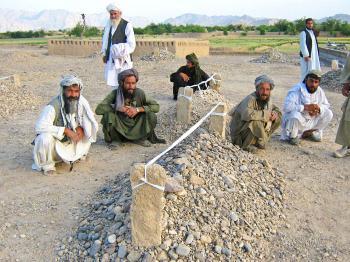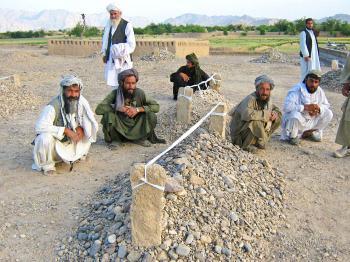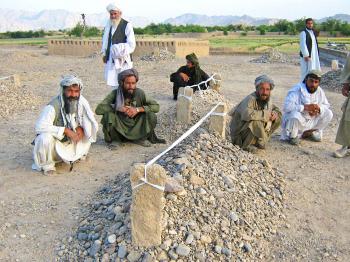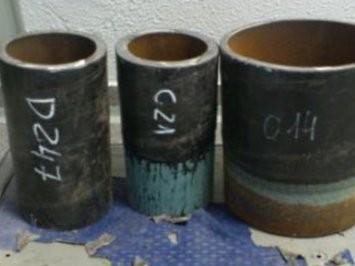A NATO air strike hit a convoy of three minibuses in Uruzgan Province in central Afghanistan on Sunday, mistakenly killing 27 civilians, news agencies reported.
The NATO soldiers thought the convoy contained Taliban insurgents who were approaching their base, but when the ground forces examined the scene after the strike, they have found that all the casulties were civilians, including four women and one child.
The air strike is the third mistaken attack against civilians in the past week.
The Afghan government released a statement on Monday strongly condemning the air strike, calling it “unjustifiable.” Officials urged NATO forces to exercise extreme caution before conducting military operations, since the mistakes that may harm civilians “are considered to be a major obstacle for an effective counterterrorism effort.”
NATO top commander Gen. McChrystal apologized to Afghanistan President Hamid Karzai, promising to “redouble efforts” to regain the trust of the Afghan people.
The latest civilian casualties come at an unfortunate time for NATO-led coalition forces, as they are entering the second week of Operation Moshtarak in Helmand Province, where 15,000 NATO and Afghan troops are fighting together.
But Sunday’s air strike was not a part of that operation, whose aim is to drive out Taliban insurgents from the area and hand over control in the region to state authorities.
The Uruzgan Province is the area where the Dutch military is in control. But last week, the Dutch government collapsed when coalition partners couldn’t agree over prolonging the stay of their 2,000 troops in Afghanistan.
After the Labor Party refused to extend the Dutch troops military deployment in the Afghan province, the prime minister announced that their troops will withdraw from Uruzgan in August this year.
The NATO soldiers thought the convoy contained Taliban insurgents who were approaching their base, but when the ground forces examined the scene after the strike, they have found that all the casulties were civilians, including four women and one child.
The air strike is the third mistaken attack against civilians in the past week.
The Afghan government released a statement on Monday strongly condemning the air strike, calling it “unjustifiable.” Officials urged NATO forces to exercise extreme caution before conducting military operations, since the mistakes that may harm civilians “are considered to be a major obstacle for an effective counterterrorism effort.”
NATO top commander Gen. McChrystal apologized to Afghanistan President Hamid Karzai, promising to “redouble efforts” to regain the trust of the Afghan people.
The latest civilian casualties come at an unfortunate time for NATO-led coalition forces, as they are entering the second week of Operation Moshtarak in Helmand Province, where 15,000 NATO and Afghan troops are fighting together.
But Sunday’s air strike was not a part of that operation, whose aim is to drive out Taliban insurgents from the area and hand over control in the region to state authorities.
The Uruzgan Province is the area where the Dutch military is in control. But last week, the Dutch government collapsed when coalition partners couldn’t agree over prolonging the stay of their 2,000 troops in Afghanistan.
After the Labor Party refused to extend the Dutch troops military deployment in the Afghan province, the prime minister announced that their troops will withdraw from Uruzgan in August this year.






